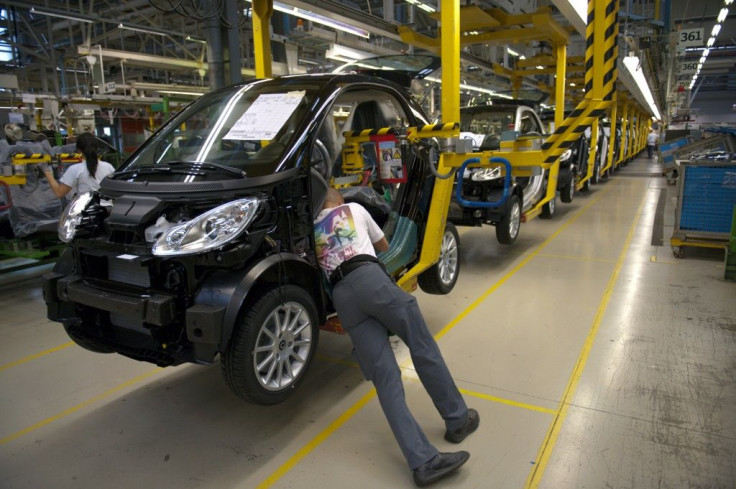Ineos Sparks Fury In UK With Mooted 4x4 Relocation To France

The Ineos group of Brexit-supporting British billionaire Jim Ratcliffe said Tuesday it was in talks to build a new 4x4 vehicle at a Daimler plant in France, shelving a planned investment in Wales and provoking cries of betrayal.
Ineos Automotive had said it was looking to build the Grenadier car -- billed as a successor to the iconic Land Rover Defender -- partly in Portugal and assemble it in Wales, but was now rethinking that plan because of the coronavirus outbreak.
The company, part of Ratcliffe's Ineos chemicals group, said the global pandemic had "led to some delays in our development plans, but has also presented some new opportunities in terms of existing manufacturing capacity that were not previously available to us".
"Specifically, Ineos Automotive has entered detailed discussions with (Daimler's) Mercedes-Benz on the acquisition of its Hambach site in Moselle, France," a statement read.
"We have therefore suspended the post-lockdown resumption of work at our sites in Wales and Portugal pending the outcome of this review. Further updates will follow in the coming weeks."
A Daimler spokesperson told AFP: "We can confirm that Ineos Automotive is a potential buyer (of the Hambach plant) and we are going to have discussions."
Daimler caused consternation last week with the French government and auto unions when it said it was hunting for a buyer of the Hambach site near Germany, which employs up to 1,500 workers making the Smart small car.
The Grenadier, described by the British company as "a stripped back, utilitarian, hard-working 4x4", was to enter production in late 2021 at a new factory in Wales, creating an initial 200 jobs, the group said in unveiling the car's design last week.
Deliveries of the BMW-powered vehicle were to start first in Britain and Europe, and further afield afterwards, after a total investment totalling ?1.0 billion ($1.2 billion, 1.08 billion euros).
The factory at Bridgend, near Cardiff in south Wales, was due to be built next to a huge Ford engine plant which is closing this year with the loss of 1,700 jobs.

Welsh Economy Minister Ken Skates said it would be "a real blow if Ineos reneged on its very public commitment".
"We have impressed on the company in no uncertain terms the importance of honouring its commitment to Wales and to deliver on its promise to build a British icon here in Britain," he said.
The plans came at a time when the auto sector worldwide has seen sales and production crushed by COVID-19 lockdowns shutting factories and showrooms, although many have since reopened.
Car enthusiast Ratcliffe, Britain's richest man who was a leading business voice for the Brexit divorce from the EU, identified a gap in the market for a rugged new 4x4 after the final Land Rover Defender was produced in 2016.
Last week's design announcement showed marked similarities to the old Defender, which has now been replaced by a more urban-friendly vehicle from Land Rover.
Peter Hughes, Wales secretary for the Unite trade union, said the mooted shift of the new 4x4 to France would be a "betrayal".
"Jim Ratcliffe very publically backed Brexit and said the country would thrive outside of the EU. How does pulling the plug on the Bridgend investment fit into that narrative?" he said.
Mario Mutzette, a representative of the CFE-CGC union at the Daimler site in northern France, likewise said the Germany company had "betrayed" its workforce last week, and they were now awaiting more details about the talks with Ineos.
"Fine if they come with a 4x4 electric but if they come with a Grenadier, with a diesel engine, that doesn't fit with the image of the Hambach site, which is an environmental showcase with its electric models," he said.
"We're on our guard."
Ratcliffe's move into car manufacturing follows a failed attempt by British inventor James Dyson, another Brexit supporter, who last year pulled the plug on plans to build an electric car.
© Copyright AFP {{Year}}. All rights reserved.





















